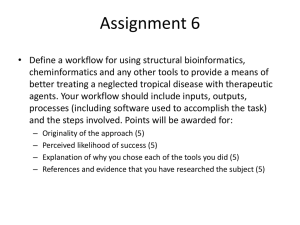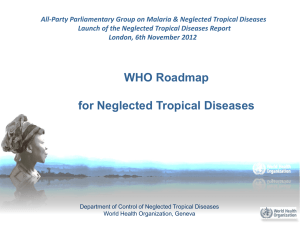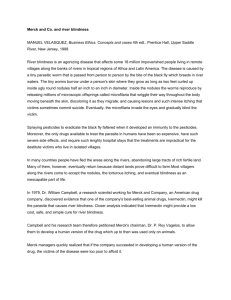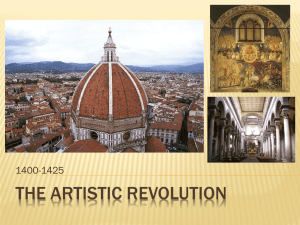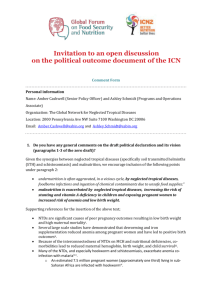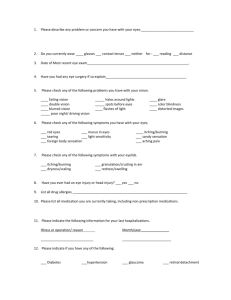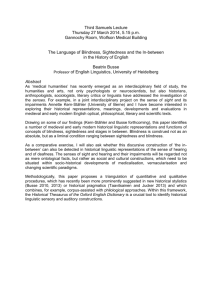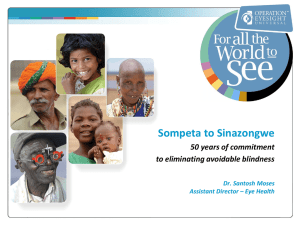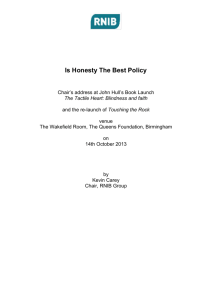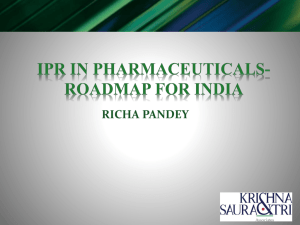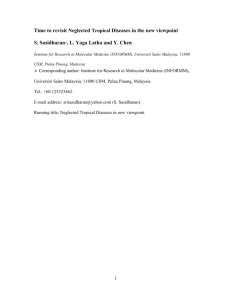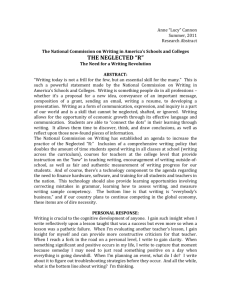Neglected Tropical Diseases Conference
advertisement
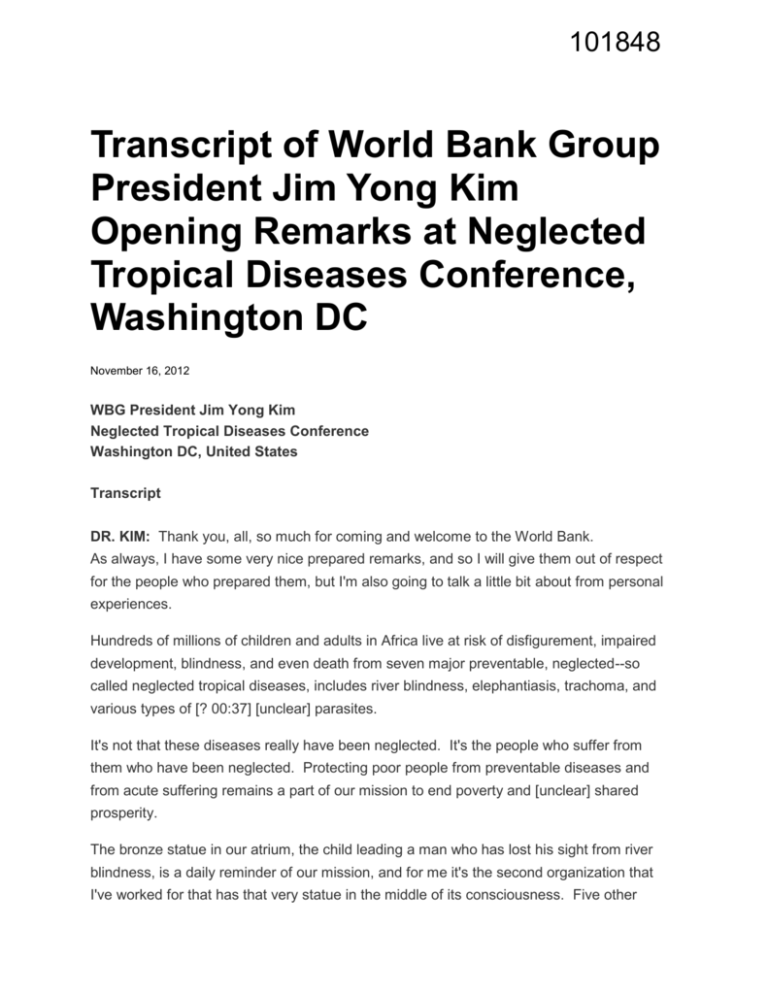
101848 Transcript of World Bank Group President Jim Yong Kim Opening Remarks at Neglected Tropical Diseases Conference, Washington DC November 16, 2012 WBG President Jim Yong Kim Neglected Tropical Diseases Conference Washington DC, United States Transcript DR. KIM: Thank you, all, so much for coming and welcome to the World Bank. As always, I have some very nice prepared remarks, and so I will give them out of respect for the people who prepared them, but I'm also going to talk a little bit about from personal experiences. Hundreds of millions of children and adults in Africa live at risk of disfigurement, impaired development, blindness, and even death from seven major preventable, neglected--so called neglected tropical diseases, includes river blindness, elephantiasis, trachoma, and various types of [? 00:37] [unclear] parasites. It's not that these diseases really have been neglected. It's the people who suffer from them who have been neglected. Protecting poor people from preventable diseases and from acute suffering remains a part of our mission to end poverty and [unclear] shared prosperity. The bronze statue in our atrium, the child leading a man who has lost his sight from river blindness, is a daily reminder of our mission, and for me it's the second organization that I've worked for that has that very statue in the middle of its consciousness. Five other statues exist including in Burkina Faso's capital and of course the World Health Organization capital in Geneva. River blindness is a debilitating disease, transmitted through flies that breed in river waters, as you know. The fight against this disease is where our efforts in the preventable, neglected tropical diseases began. This fight, supported by many organizations and partners including the World Health Organization, the World Bank is a true success story, and today over 80 million people a year in Africa regularly receive drugs donated by Merck to prevent river blindness. Protection again disease is not just an investment in health but an investment in the economy. As river blindness has been controlled in large parts of West Africa, families have been able to return to 25 million hectares of arable land with the capacity to grow enough crops to feed 17 million people. River blindness has also been eliminated in several endemic areas in Africa, such as transmission zones in Senegal and Mali. At the beginning of this year, the Bill and Melinda Gates Foundation, several pharmaceutical companies, and many other partners, including some very active civil society organizations, united behind a common mission to control or eliminate the seven major preventable, neglected tropical diseases in endemic countries. I'm delighted that we at the World Bank are able to support the effort to tackle these diseases in a coordinated way. Tackling these diseases in a coordinated way in [unclear 02:50] Africa. It saves lives and money, and requires expanding lessons that we've learned from our efforts to eliminate river blindness. First, a simple community health system approach. And second, partnerships with pharmaceutical companies for the free supply of drugs. A key element of this extended effort is to strengthen community health systems in these endemic countries through national health strategies that aim to reach every citizen with good quality health services. We can bring about great change by working together efficiently. You know, I remember the very first time that this idea of donating drugs became to be, and it was actually in a video with Roy Vagelos of Merck, and Bill Fahey of, at that time [unclear 03:37] Carter Center by President Carter. And I'll never forget the conversation where President Roy Vagelos of Merck was asked directly, "You mean you will supply every person in the world who needs Mectizan with the drug forever?" And he said, "Yes, forever." Now, my understanding is that at first when the Merck folks about this they weren't very happy when he made that commitment, but I have to tell you, those of us in the public health world were simply blown away. I've since had the great pleasure of working very closely with Bill Fahey and also being measured [? 04:16] by him in a very substantial way. And just yesterday I was on the phone, a videoconference with Bill and with Mark Rosenberg, who now runs the Task Force for Global Health, which manages the Mectizan Donation Program. And I've also had the great, great honor of interacting quite a bit with Roy Vagelos, who continues his great work in trying to bring medicine and cures to the poorest people in the world. So I, mostly today, just want to thank everyone in this room for your effort to continue this extremely worthwhile fight. You know, I was involved in HIV and tuberculosis, malaria, much more high-profile diseases. But having spent so many years of my life actually seeing cases of elephantiasis, seeing cases of trachoma in places like Haiti, in three countries in Africa and all over the world, I understand very clearly the enormous morbidity, the enormous suffering that comes from these diseases, and I hope that through our joint efforts, we will one day look at these as no longer neglected tropical diseases. Thank you very much.
